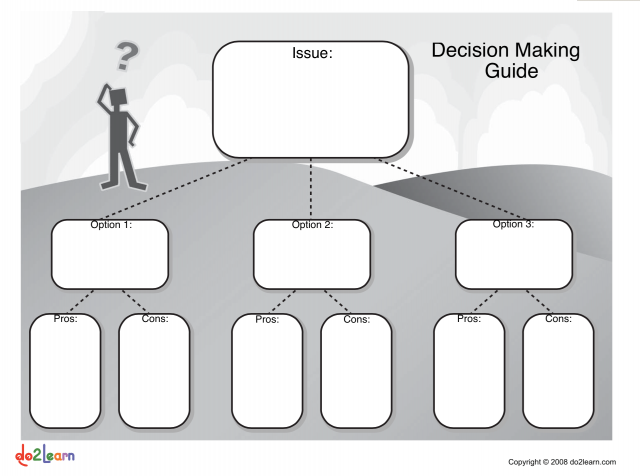Post 16 Transition for students with SEND / ASC.
At this time of year many secondary teachers are thinking about the looming GCSE’s for their Y11’s and may also be thinking about what happens next for their students. If a student has SEND / ASC then there are additional challenges when leaving school and moving on to the next step in their educational lives.
I often find that the student’s themselves realise in Y10 that they will soon be leaving school. For some they may be so relieved that it’s all they want to think about. For other’s it’s such a massive change in their lives, after all, being at school is all they’ve ever known, that the anxiety it causes can seriously impact on their concentration, mental wellbeing and motivation in school. Some are so anxious, they cannot bear to talk about it.
This blog is co-written by @Mr_ALNCo an FE Teacher who’s created a role for a Transition Support Worker at his FE college in South Wales. First I am going to look at transition to college or training from the viewpoint of the school, and James is going to offer advice from the college’s point of view.
What Secondary Schools can do.
The Y10 and Y11s I work with who have ASC are often very worried about leaving school. However, working with them to explain what leaving will be like, what options they have and developing some plans that enable them to see the way ahead can be really important. If they have an EHCP then transition meetings should start in Y9. By the time they get to Y11, the meetings should be with the college or other establishment they are going to go to and make a plan of support that the student and their parents can contribute to. If no EHCP their needs are still important and preparing them for college or apprenticeships is just as important.
- Include their parent’s ideas and start with a familiar member of staff who knows the student well. With the student, work out a number of choices they have for the their future. Talk about their aspirations, their favourite interests and subjects they might do well in. I use a decision making visual to look at the pros and cons of each option, including what grades might be needed (and what option is available with lower grades if relevant.) This information is shared with parents and the family given time to explore and discuss with their child. I have done this in Y9 to help a student choose their options, but mainly with Y10s and Y11s, depending on the individual.
- Use the internet to research the possible colleges and courses the student might be interested in. There are often a few places to choose from, depending on your area. School 6th Forms might be good for some students for familiarity, but for others might be limited on choice of subjects. Every student will need treating individually to find what will work for them.
- Find out what apprenticeships are offered and if support is available for their SEND needs. Present that information to the student and their family, and encourage parents to arrange some visits to these places as early as possible. One student I have worked with has been set up with a farming apprenticeship in conjunction with the family, a local college and a local farm. All bespoke for him.
- Talk to the student about growing up and teach them some practical life skills, again working together with parents. Using public transport, making phone calls, sending emails, using money and paying for things are really important skills to help them move on from school into post 16 life.
- Plan, talk, prepare, visit, familiarise, support and talk positively about the next stage. But don’t overdo it. They still have to finish their time at school and some pupils with SEND /ASC might not be able to cope with thinking about exams and college. In that case, plan some transition support after GCSEs have finished. One school I worked with brought the student back into school after GCSEs and he worked with his previous TA on getting ready for college with great success.
And now from @Mr_ALNCo
What Colleges can do.
Transition for learners with SEND/ALN is something that traditionally is rather inconsistent across the FE sector in Wales or where it is consistent, the chance to share this good practice is often limited. Many practitioners who work with learners with SEND/ALN know the importance a good transition pathway into college can have for learners.
I am lucky, in that I have a supportive Principal and Vice Principal who supported my view of the importance of transition, allowing me to create a specific role to help support transition and reviews within the college. A new post which we feel will have huge beneficial impact.
Much like the Local Area Reviews now taking place in England, Wales has seen a huge change in make-up of its FE provision over the past years, resulting in fewer, larger, more resilient colleges.
In addition to this, the Welsh Government has introduced a bill into the Senedd in Cardiff Bay which, if passed, will bring about the biggest change to the SEN system in Wales for the past 30 years. Much like the duties contained Children and Family Act 2014, (although there are some differences), FE, for the first time will have new statutory duties, one of which is to maintain an Individual Development Plan for learners with SEN/ASD. If you want to know more, visit the Welsh Government’s ALN pages on its website.
It is crucial that FE in all areas start to plan for this now. If we want better outcomes for our learners with SEND/ALN we need to make sure that they get the best possible start in college. How then can we ensure this happens? From a FE perspective looking out to fellow practitioners in schools, the 4 elements below go some way to helping
- Link with your college’s Learning Support department. There are many talented and caring professionals who can advise on course choice, adjustments and transition arrangements. Open up the lines of communication and don’t be afraid to ask questions
- Share any relevant material which will help support the learner. If the learner has a One Page Profile, this is a great way for staff in college to get to know the learner.
- Invite the college to any Annual Reviews which are taking place for learners who are expressing an interest in college. The more we know about the learners’ aspirations and support requirements, the easier it will be to work together.
- Many colleges hold open days and bespoke events in quieter times for learners with SEND/ALN, if not contact the college who will normally be more than willing to arrange a bespoke meeting/tour. Our college has recently introduced VR tours, something that fellow FE colleague, Joe Baldwin has used as a powerful transition tool.
For each learner, we hold a review within the first term to see how they are settling into college. This gives us an opportunity to change the things that aren’t working and continue the things that are working well.
Much like our learners, we as a college are always learning.
@Mr_ALNCo





Also ask vocational areas to provide checklists for class ie USB, calculators and allow time for students to orientate, how much time it takes to get to canteen, WC etc. From classroom.